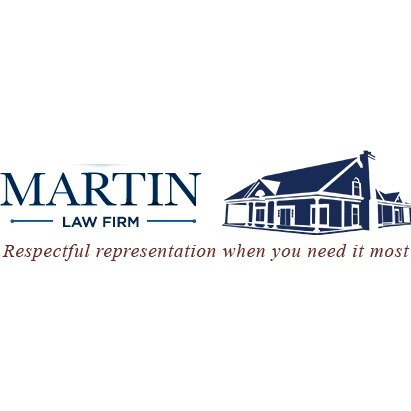Best Medical Malpractice Lawyers in Fayetteville
Share your needs with us, get contacted by law firms.
Free. Takes 2 min.
List of the best lawyers in Fayetteville, United States
About Medical Malpractice Law in Fayetteville, United States:
Medical Malpractice law in Fayetteville, United States, is primarily designed to protect patients' rights in the event of negligence by health care providers. These laws are in place to provide recourse for patients who suffer harm as a result of failures in the standard of care, errors in diagnosis or treatment, improper patient management, or other types of negligence by medical professionals.
Why You May Need a Lawyer:
Medical Malpractice cases can be complex, involving the intersection of law and medicine. You might need a lawyer if you believe you have been harmed due to medical negligence. If you have experienced unexpected complications from a medical procedure, been given the wrong medication, or received a late misdiagnosis - these situations could indicate medical malpractice. A lawyer can help guide you through the legal process, substantiate your claim, and help you seek compensation for your damages.
Local Laws Overview:
North Carolina, which includes Fayetteville, has distinctive laws pertaining to medical malpractice. North Carolina operates under a pure contributory negligence rule, meaning if the patient is found to be even slightly at fault (1 percent), they could be barred from recovering damages. There's also a cap on non-economic damages (like pain and suffering), and plaintiffs are required to have an expert medical witness to testify. It's essential to have a lawyer who understands these unique characteristics of local law.
Frequently Asked Questions:
1. What constitutes Medical Malpractice?
Medical Malpractice occurs when a healthcare provider, through a negligent act or omission, causes injury to a patient. The negligence might be the result of errors in diagnosis, treatment, aftercare, or health management.
2. What are common examples of Medical Malpractice?
Common examples include surgical errors, birth injuries, misdiagnosis or late diagnosis, prescription drug errors, and failure to treat or inappropriate treatment.
3. How long do I have to file a Medical Malpractice suit in Fayetteville?
North Carolina law gives you three years from the date of the alleged malpractice, or one year after the injury is discovered (up to a maximum of four years after the medical error), to file a malpractice suit.
4. How can a lawyer help in a Medical Malpractice case?
A lawyer can evaluate your case, gather and present evidence, engage expert testimonies, negotiate with the defendant's attorneys, and represent you in trial, if necessary.
5. What sort of compensation can be sought in a Medical Malpractice claim?
Claimants in medical malpractice cases may seek compensation for economic damages such as medical bills, rehab costs, lost wages, and non-economic damages like pain and suffering, among other things.
Additional Resources:
The North Carolina Medical Board and the North Carolina Department of Health and Human Services can provide valuable information and assistance in understanding patient rights and regulations about medical care. Websites like the American Bar Association can provide resources about legal procedures and finding a qualified lawyer.
Next Steps:
If you believe you have a legitimate medical malpractice case, it is crucial to consult with an experienced lawyer who can provide guidance based on your specific circumstances. They can help to ensure all the appropriate steps are taken, from filing a claim, collecting evidence, to representation in court, if necessary. Remember, the time limit for filing a claim is critical, so timely action is advised.
Lawzana helps you find the best lawyers and law firms in Fayetteville through a curated and pre-screened list of qualified legal professionals. Our platform offers rankings and detailed profiles of attorneys and law firms, allowing you to compare based on practice areas, including Medical Malpractice, experience, and client feedback.
Each profile includes a description of the firm's areas of practice, client reviews, team members and partners, year of establishment, spoken languages, office locations, contact information, social media presence, and any published articles or resources. Most firms on our platform speak English and are experienced in both local and international legal matters.
Get a quote from top-rated law firms in Fayetteville, United States — quickly, securely, and without unnecessary hassle.
Disclaimer:
The information provided on this page is for general informational purposes only and does not constitute legal advice. While we strive to ensure the accuracy and relevance of the content, legal information may change over time, and interpretations of the law can vary. You should always consult with a qualified legal professional for advice specific to your situation.
We disclaim all liability for actions taken or not taken based on the content of this page. If you believe any information is incorrect or outdated, please contact us, and we will review and update it where appropriate.









